Covering the Campaign Trail When There Is No Trail
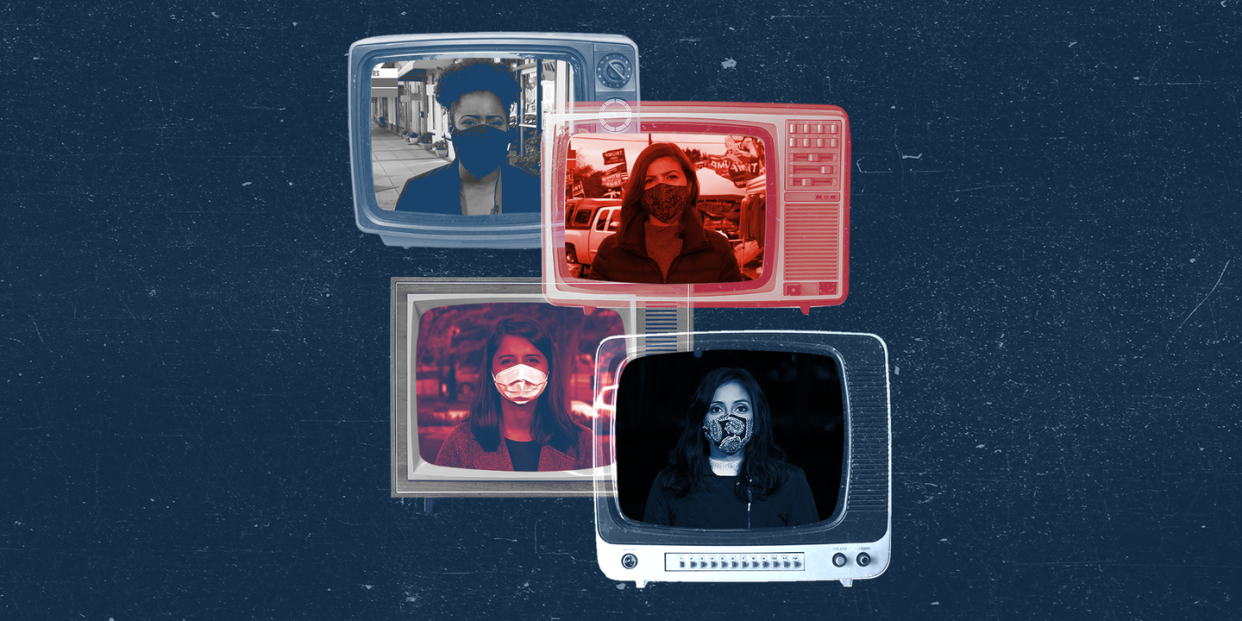
The life of a campaign reporter is nonstop, on the go, all the time. Those on the trail are up at the crack of dawn, stopping in multiple states every day, lugging and setting up their own video equipment, writing in moving busses, eating in their cars, speaking with local voters, and tracking their designated candidate’s every move and word. But what happens when that full-speed-ahead pace hits a screeching halt?
Like countless Americans earlier this year, journalists, especially those who were on the road following candidates throughout the primary races, had to adjust to a stiller, quieter, more isolated life at home because of the coronavirus pandemic. Crowded press risers were swapped for apartment couches. Charter plane flights became long solo drives. Hotel hangouts with coworkers became weekly FaceTimes. Time spent away from family became uninterrupted togetherness. Reporting with masks and at a six-foot distance from others became the norm. And hand sanitizer and frequent COVID-19 tests are basically part of the job. “The new normal has become so normal now that it’s almost bizarre to think of life without coronavirus, which is actually kind of sad,” says veteran journalist Dana Bash, CNN’s chief political correspondent.
The August documentary On the Trail from HBO Max and CNN shared a behind-the-scenes look at women in broadcast news covering the Democratic primaries pre-pandemic, as they followed candidates like Bernie Sanders, Kamala Harris, Pete Buttigieg, and others across the country. The film not only highlights the reporters’ rigorous work, but also the meaningful friendships and mentorships they forge with each other in an industry that’s still dominated by men and lacks representation of women of color.
We caught up with some the journalists from On the Trail, as well as embeds and correspondents from various cable news networks, to chat about what it’s like covering a critical presidential election during a pandemic, an economic recession, and the rise of the historic protest movement against racism and police brutality sweeping the globe. Some are scattered about the country, having retreated to their parents’ houses or home states, from Florida, South Carolina, and Texas to Illinois and California. And though most of their candidates have dropped out of the race, these reporters are still working hard, having transitioned to covering the coronavirus, Black Lives Matter protests, voter integrity, and even local news before the final leg of the presidential race.
“No day’s the same,” ABC embed Beatrice Peterson says. “It’s just different now.”
What did your day-to-day look like covering the election before the pandemic hit?
Molly Nagle, ABC: You'd wake up in a hotel room, you'd pack all your stuff up really quickly, and pray to God your suitcase closed, and grabbed coffee where you could and jumped onto the campaign bus, hit the events that they were doing, jump onto a plane to get to your next state, jump off, do the events there, and just kind of rinse and repeat throughout the day. It was pretty crazy. You didn't have a lot of time to really think about what you were doing. You just saw those tasks in front of you and you just dove in.
Averi Harper, ABC: I was traveling almost until the day before everything shut down in March. I was in Cleveland supposed to be covering Bernie Sanders's rally. Joe Biden was also supposed to have a rally that night as well. Both canceled after the governor said, "No more gatherings of more than 250 people." Even at that point, there were still rumblings about coronavirus, but we were still in rooms with thousands of people every single day. I was always with Bernie Sanders, and his crowds were large. And then days later, everything was completely different. I was reduced to covering things from my couch. That's what I've been doing ever since. Sometimes I sit at my kitchen table, but most times it's my couch. It's been a complete change from what I was doing before, where I was on a plane twice a day, sleeping at different hotels every night, following the campaigns. Now I've settled more into a routine.
Beatrice Peterson, ABC: I was covering Mayor Pete and Tulsi Gabbard. During that time period, I'd wake up around 6-ish, 6:30, just to make sure that they didn't make any news overnight. But usually, I go to sleep at night around midnight or 1 a.m., because I'm a night owl. But I do take a lot of naps, so I do get rest, but it's just sporadic. Around 9 a.m. is when our editorial calls start, so I'll start that, or I'll make source calls around 9 a.m., 'cause that's, like, a socially acceptable hour to call people. I'll be on calls from 9 a.m. to about noon. And then, if there's an event, I will go to the event or hop on a plane or travel or make travel arrangements for last-minute events.
All the events are always last minute. It would just be depending on the candidate. Your lunch comes when the candidates aren't doing something or, a lot of, you know, coordinating with embeds to get Uber Eats sent to the campaign event or eating in your car and driving. It was a lot of moving, constantly moving. You don't really sit still as an embed. My last campaign event was Tulsi Gabbard in Detroit, Michigan.
Nicole Sganga, CBS: Right before the pandemic hit, I essentially went from charter planes to childhood bedroom, because I had been traveling in the days ahead of Super Tuesday with Senator Amy Klobuchar. I would wake up in the morning sometimes at 4 or 5 a.m., get ready to go. If I had a CBSN hit to figure out or an article that I was trying to get out on the web at 6 a.m., I would down as much coffee as I could. And then, I might do two to three states a day on the senator's charter plane. We would just go, go, go, go, go from event to event to event. And in between, we were doing the best we could to connect with as many voters as possible on the ground, hear their stories, get a sense of really where the race is going, and relay that back to our teams in Washington and New York.
It was very high paced. It was very fast and certainly had a lot of person-to-person contact and definitely a lot of travel. Prior to the New Hampshire primary, I was based in New Hampshire. And I was our embed there for about nine months. I lived in Manchester, and I covered over 20 presidential candidates in that capacity. I would oftentimes wake up and head to a Pete Buttigieg rally. And then, I would catch Elizabeth Warren in Portsmouth. And then, I would circle up to Berlin for a Joe Biden rally or whatever it was for the day.
Kyung Lah: It was in so many ways easier to plan your life, because even if it may be chaotic right before what the plan is, eventually there is a plan. And so, you can book your flight, you can get there, you could cover the story, you can figure it out. And because it's a long arc of covering politics, you know your candidate so well, you basically just track them and their movements. So the structure of your life is somewhat more predictable. You cover the trail, you cover the candidate. That's what life looked like. And now it's like, hell, I don't know.
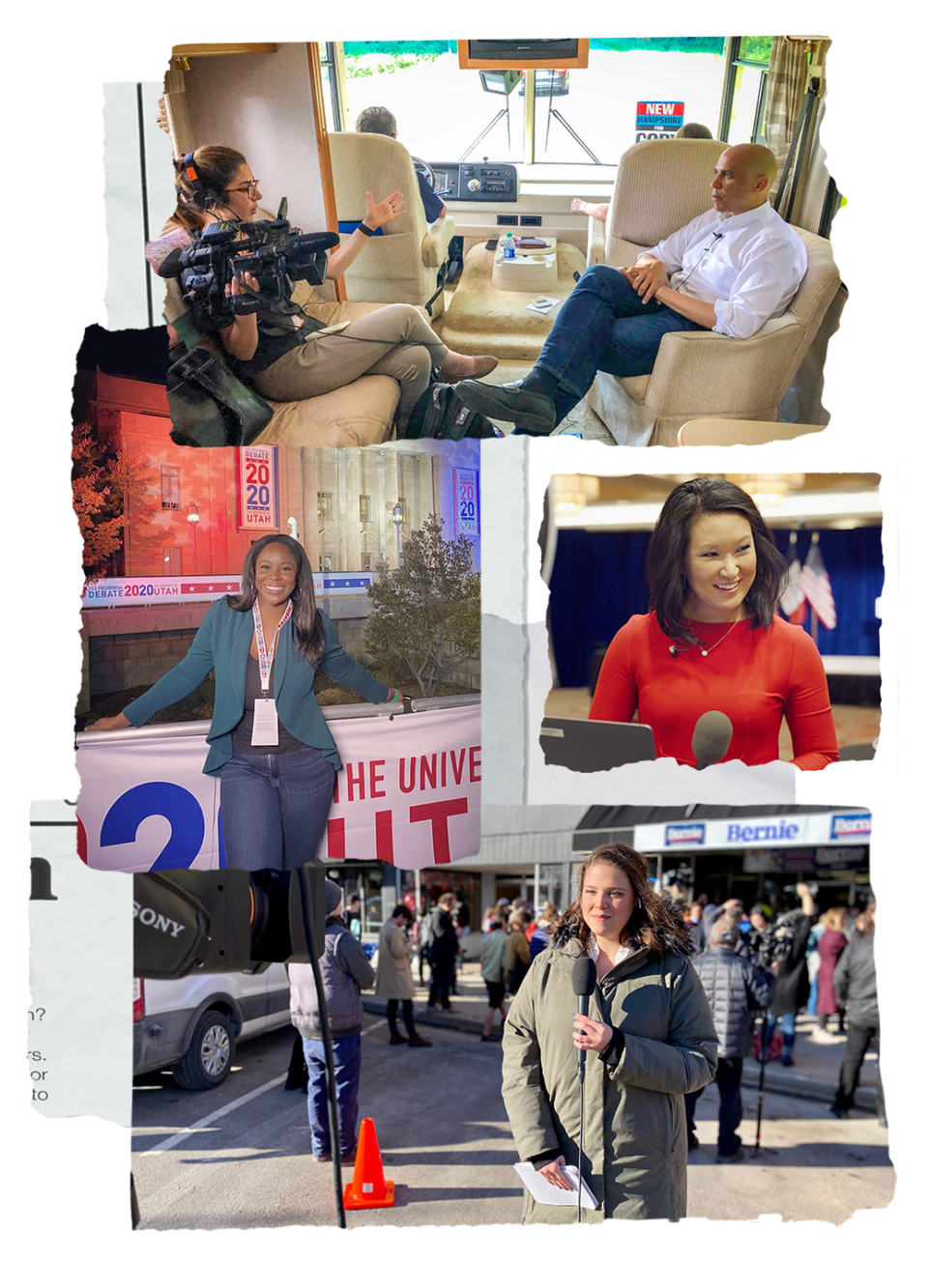
What does it look like now? How has it changed?
Cara Korte, CBS: It was constant motion and constant change, and that immediately went to no movement at all. And everything was the same, which was a real shock to the senses, because we had almost a year under our belt of adapting to life of that constant churn. And then all of a sudden, being met with the orders to stay where you are and not travel and you can't talk to voters in person, it was really difficult for me to get used to, because we had adapted to one lifestyle, and then basically in a blink of an eye, that all changed.
It feels like we went from watching a baseball game from behind home plate where you could hear the crack of bat, you could hear the players yelling to each other and it's just vivid, to this experience of, like, listening to a baseball game over the radio. You feel a lot more detached, but we've just had to adapt, leaning on technology a lot more to be able to reach people. For me, I'm now covering voting by mail, election issues, and voting integrity, which is something that I don't know that we would have had an embed on previously because of the pandemic.
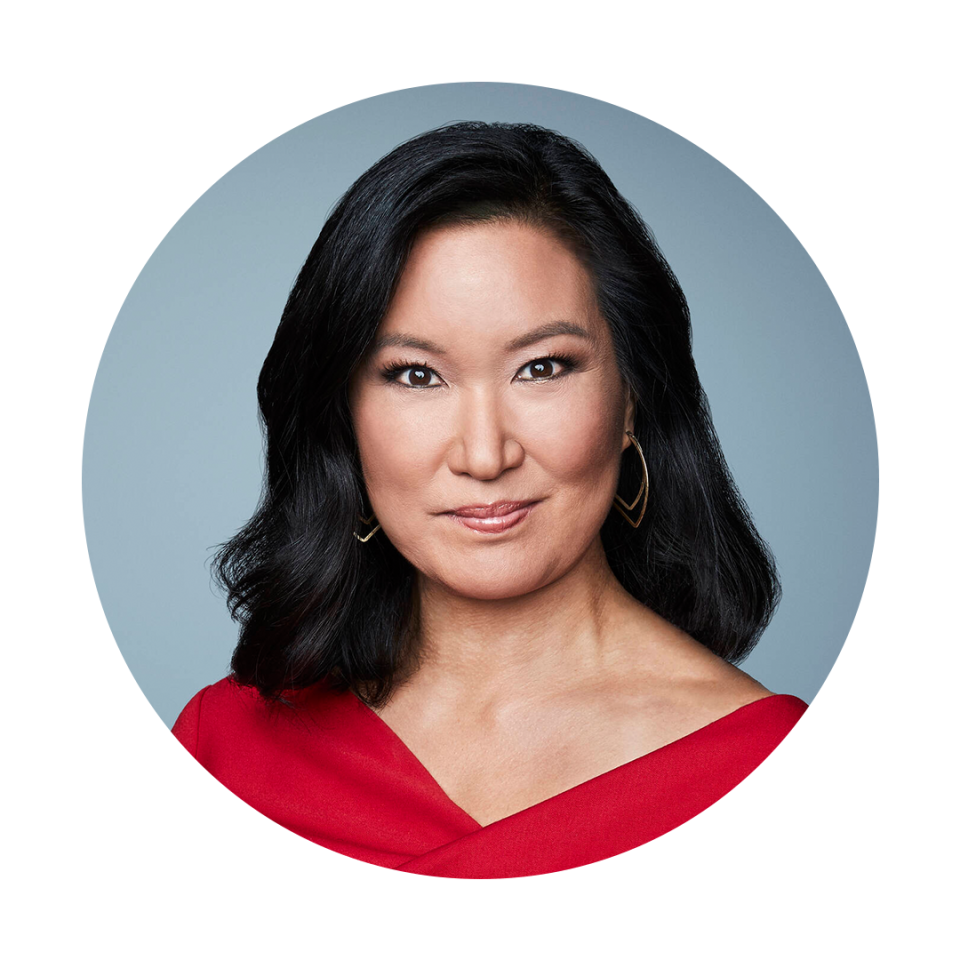
Kyung Lah, CNN: First of all, there is no physical trail to cover. Politics in an election year, astonishingly just simply evaporated in the form that we know it. It's gone completely virtual. It is so hard, especially from where I'm based in Los Angeles, to cover it. So we're all shifting to do the immediate news. Basically, since Super Tuesday, I've been doing a hundred percent coronavirus [coverage]. I've been everywhere from an emergency room at a COVID medical ward to this gentlemen's backyard today with his two kids and he's about to be evicted. The world has completely changed. I am busier than ever, just not in the same way. It's sad to be busy right now doing these types of stories.
The East Coast is up and rolling pretty early. My bosses wake up at 5:30 Eastern time. I wake up about 4:35 a.m. Pacific time, just so I'm at least kind of caught up.
Jasmine Wright, CNN: I went from being an embed to I was then reporting with a group of really wonderful reporters on what was happening at hospitals and what was happening with PPE and medicine to sedate folks who need to go on a ventilator and stuff like that. It was really all done from my father's couch. That compared to going to three different states in a day, that's completely different. I'm not getting those steps in anymore.
As the stay-at-home orders, at least in Chicago, lessened a bit, and who was going to be VP became more of a discussion, I was transferred back into politics and was assigned to those women who I had covered during the primary campaign. So Klobuchar and Harris. It's just been kind of progressing and progressing to being more and more relevant, and having to do more reporting and watch more livestreams.
Monica Alba, NBC: The biggest difference with covering the White House is that obviously that beat doesn't stop; if anything, it got more intense. And so, I was at the White House every week or so for a couple of days sharing with the rest of the team. So many Americans, I feel, have been working from home mostly and consistently. I never had that moment. I was kind of going every few days. I look at the people who really have been working from home for six whole months. And I don't know what that experience is really like, because at the White House, the reporting and the coverage and being there physically in person was really important. And that never stopped.
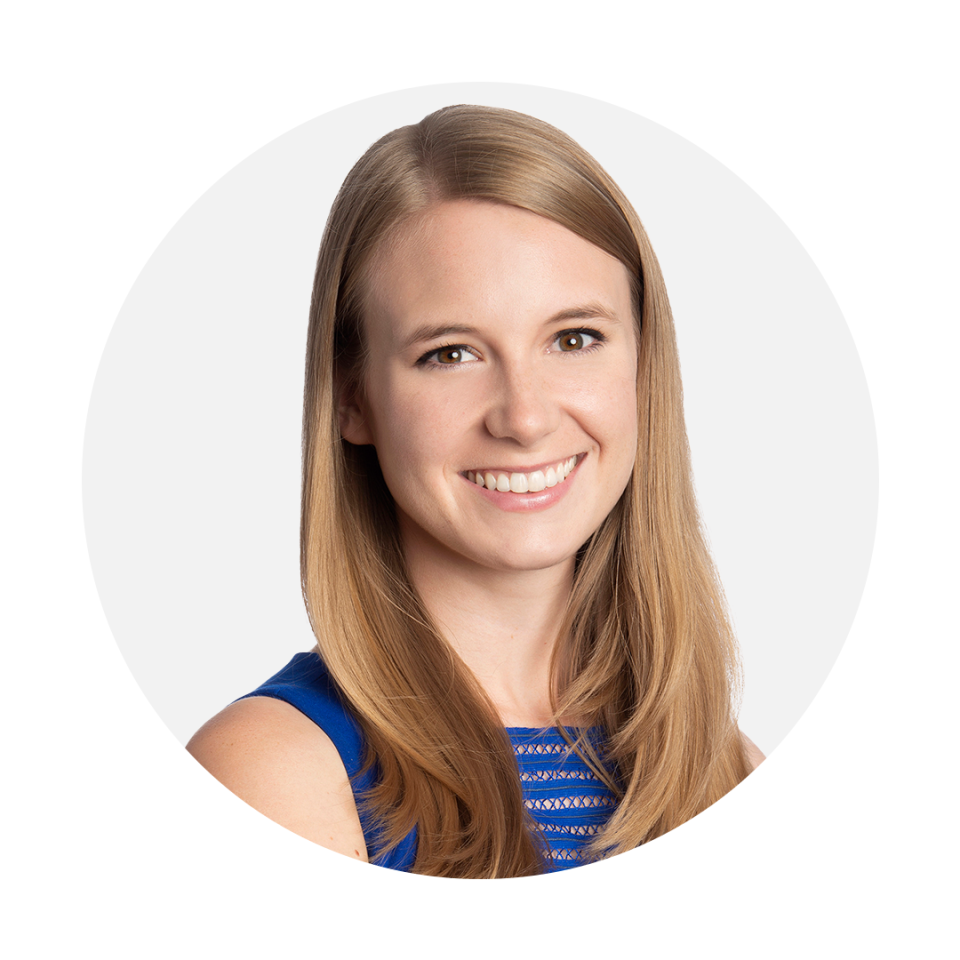
Molly Nagle: It's kind of a 180 in the sense that when you're out on the trail, you're rushing to set up your gear and you're setting up your camera and making sure everything's set with that. And then, you're trying to talk to people in the audience to see how they're feeling about the election, what are the issues that matter the most to them, and you're interacting with campaign staff and you're talking to them about what's up next for the schedule. There's just a level of access there, but you don't have any time to really dig in on enterprise reporting or really try and dig in on bigger-picture stuff. Now, you have all the time in the world to do that, because if the candidate has an event, it's you sitting in your apartment on your couch watching that event and typing it up. There's no camera to set up. There's no audience to talk to. But you definitely miss that interaction and that level of communication with the people that you're just around every day.
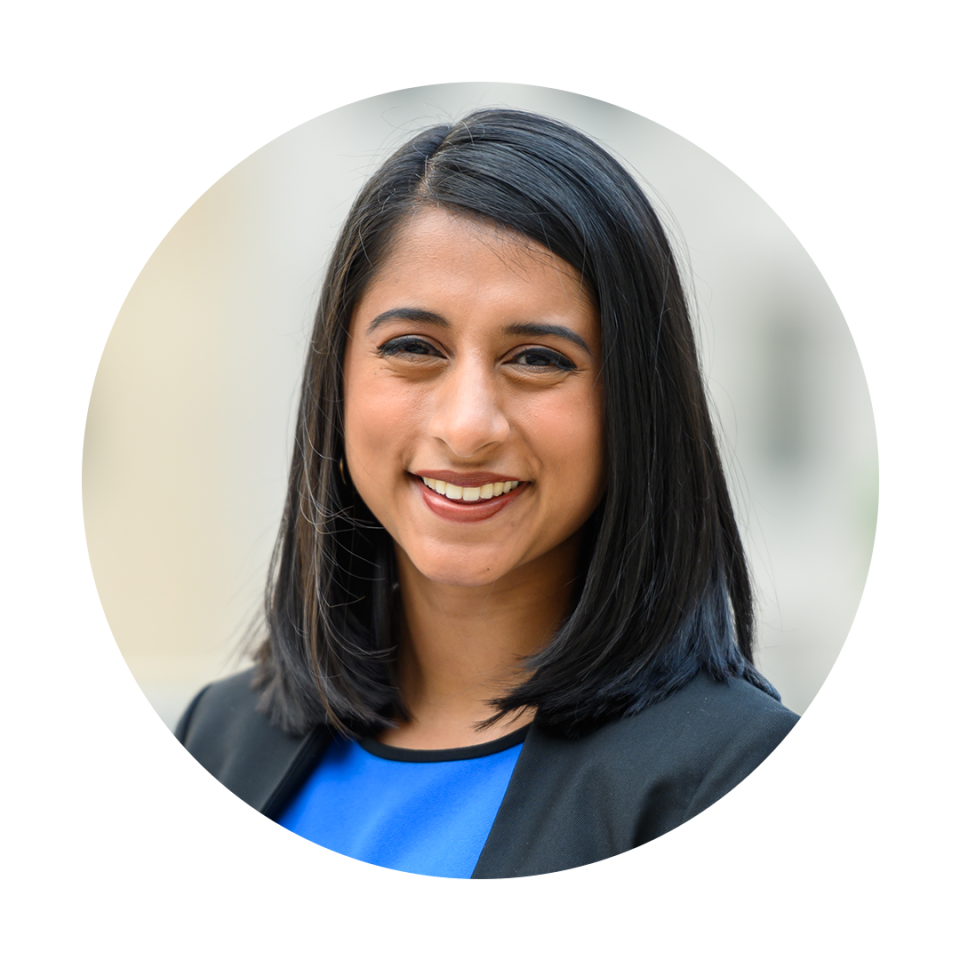
Deepa Shivaram, NBC: It was really crappy in the beginning to be sitting around in your house when you used to be traveling the country. … But I will say after that you get over that hump, it was actually a real opportunity to be able to cover my home state. I'm from Charlottesville, Virginia. And so, for the first time, you're able to troll around for stories. When you're covering this campaign, the story's always right in front of you. It's right onstage, like, six feet away from you. You know, Elizabeth Warren says this and that's my story for the day. But for the first time in that six months of COVID and being home, I just had an opportunity to tell stories and look for stories and be able to cover communities that you weren't always able to talk to.
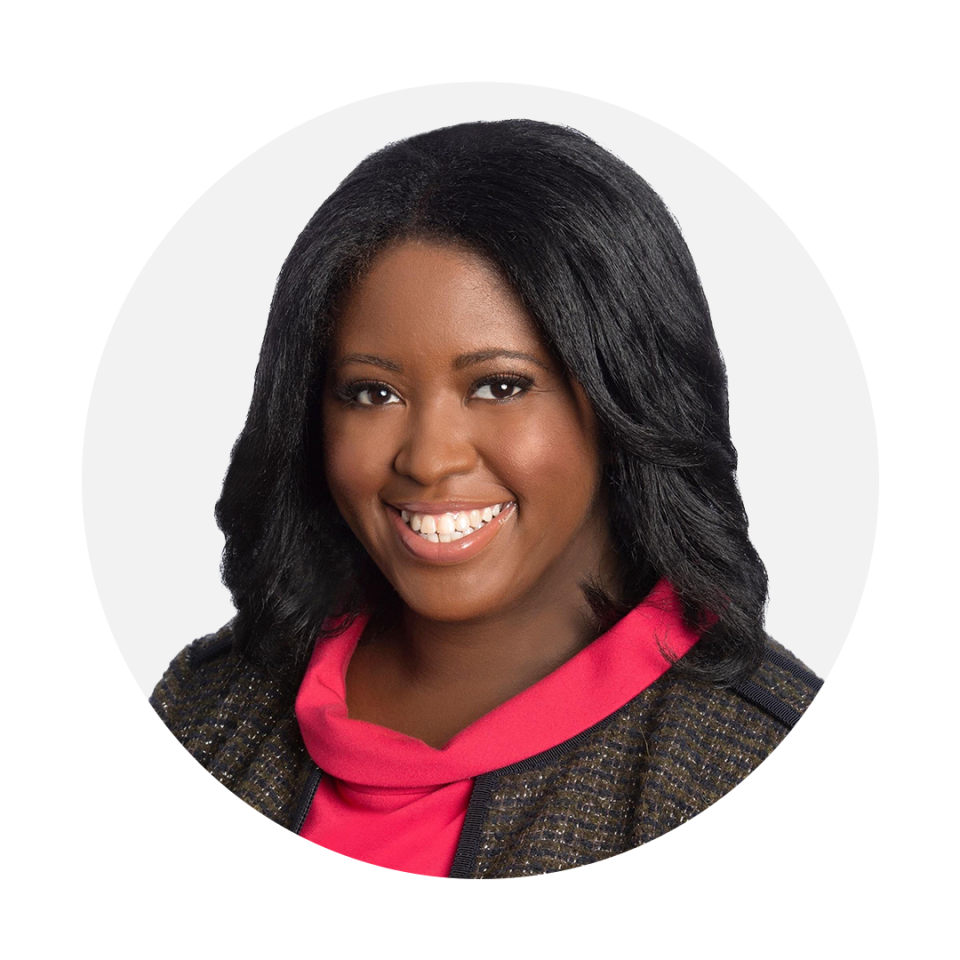
Beatrice Peterson: I ended up coming home and getting sick, and was diagnosed with pneumonia. But there weren't any COVID tests at that time. … I ended up producing COVID stories in my community. I was field producing and doing COVID stories, and ended up doing Black Lives Matter coverage. I was outside of the White House for weeks. And then, I ended up getting assigned to Biden, who I cover now. My [days] start at roughly 5, 6 in the morning. I'm watching TV constantly, watching Twitter, emails, livestreams. When Biden does have an event, I'll be at the event. I was staked outside Kamala's house.
And I'm still traveling. I went to Trump's Tulsa rally. I went to Trump's failed New Hampshire rally, the one he canceled. I did Biden's first event in Wilmington. I did John Lewis's memorial too. I travel now maybe once a week, but I still have the same schedule where I'm waking up early in the morning and going to sleep late at night.
What new precautions have you had to take?
Nicole Sganga: We take absolutely no chances. I carry hand sanitizer, masks, goggles, gloves with me just about every single place I go. I'm consistently and regularly tested. When I'm doing an interview with someone at a campaign event, I am always six feet away from that individual. There's always been very concrete risks that journalists have to take. The question isn't, how do you take no risks? It's, how do you take the least amount of risk? We're doing the best we can, but really, too, we're trying to protect the people that we are interviewing and interacting with just as much as we're trying to protect ourselves.
LaCrai Mitchell, CBS: I have Lysol wipes, on Lysol wipes, on Lysol wipes. Also, I just tell the interviewee, "Hey, if you are more comfortable keeping your mask on, definitely do that." And you also have to ask them, and I don't think people get offended by this question, "Have you seen any symptoms? You haven't felt like you've had a temperature or anything lately, right?"
Monica Alba: [It] was surreal to first sort of walk into the White House gates in those initial weeks and have your temperature taken and be screened for certain symptoms. That actually went away after a couple of months, once the District of Columbia went into a different phase of reopening, but also, we had to basically limit our accessibility to certain events.
We're on a rotation, for example, for White House news conferences and press briefings. All of the networks have a schedule, and we take turns being in the briefing room so that there can be distance between the seats, which is, of course, something we never had to really consider before.
Jacqui Heinrich, FOX: During the DNC, I was in the room for Harris accepting her nomination and Biden accepting his nomination. In order to get into that room, we could only have one person from each network. We had to be tested. We'd have two consecutive negative tests for COVID in the 48 hours proceeding. We had to wear N95 masks that were handed out to us by the campaign. They encouraged gloves, too, but I don't think anyone actually wore the gloves. It's hard to type with latex on your hands.
There were a lot of screenings, temperature screenings, that kind of thing. With the company [FOX], we try to keep ourselves separated so that if one person gets sick, our whole team doesn't go down. So for instance, Biden had an event in Pennsylvania and I had to drive my car separate from my producer, separate from our photographer, to get to that event on my own. Whereas ordinarily, I would be a passenger in the car getting a head start on my script. I'm finding that my days are longer. But I'm healthy. So that's a trade-off I'm willing to make.
Cara Korte: I haven't even gone out. And part of that was because when I was with my parents in Florida, my parents are in that high-risk category. We were sometimes visiting my grandmother who also lives in Florida, who is in her 90s. Our bosses have been super understanding in that. I just told them this isn't something I'm willing to take a risk on right now. I'm so grateful for that.
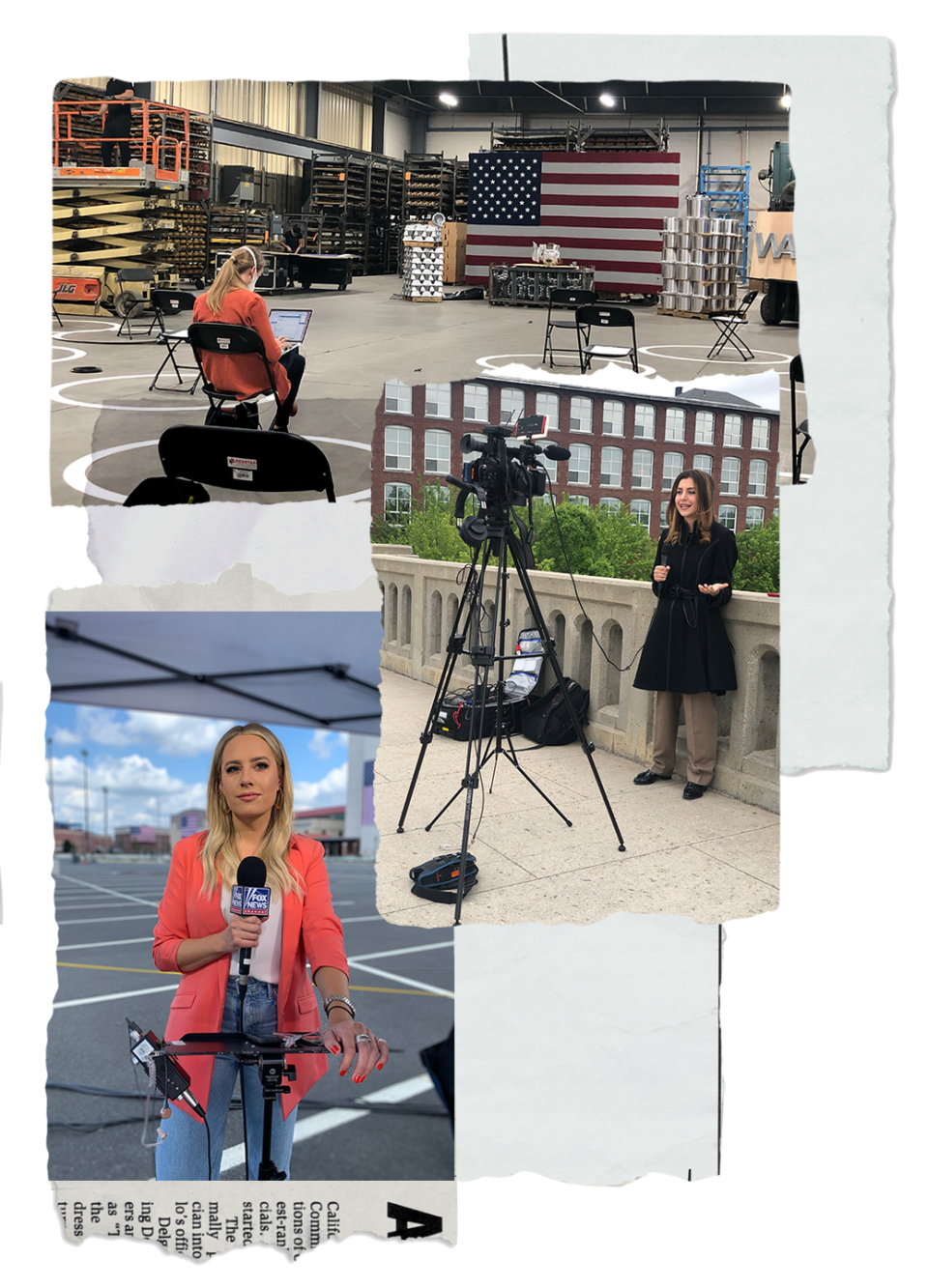
Have the safety measures made your job more difficult?
Deepa Shivaram: I really miss talking to voters. You don't really get to do that anymore, especially now that we're in pool coverage. Both Joe Biden and Kamala Harris have secret service, which means that when you're out as a pool reporter and you're with the traveling press corps, you're kind of all in this little pack and we're on the bus and things like that, but there's no rally. There's nothing where voters are there. And a huge part of being embeds and covering the primary was understanding how the country felt, because you were able to talk to people. There's none of that anymore.
In terms of these on-the-ground changes that are happening in this general election, it's really tough to not necessarily have the ability to be where Kamala Harris is. And then also talk to voters who are there with her in the same space, in the same state. And, you know, is it making a difference that she's on the ground? Is it making a difference that she's traveling? It's kind of difficult to gauge that sometimes.
Priscilla Thompson, NBC: I'm covering Texas, Georgia, Alabama, some of the Senate races, and things like that, but also just voting and what that looks like for people. I think that the mask and the distancing hasn't been an issue or a challenge per se, but I do think it's interesting to think in real time, how to handle a situation if you're somewhere where someone doesn't believe they need to wear a mask, or folks aren't wearing masks. NBC has done a really good job of setting a precedent of if you don't feel comfortable or you feel unsafe, leave. The story is not that important.
LaCrai Mitchell: When we're out in the field, when I would go to a campaign event in South Carolina, the first thing that I'm looking for before I even go into the location is are there lines outside? Are people in line even while it's raining? Are they excited? Is there that sort of excitement of people being chatty and the murmur of, "Oh, my gosh, I can't wait to see them"? Do they have a lot of paraphernalia for that candidate? I get into the event, and then I'm trying to see, How many chairs do they have set up? Is it a big venue? Is the venue packed? Once the candidates are talking, are people paying attention? Are they dozing off, or are they clapping a lot? Are they laughing? Does the candidate feel comfortable?
There are all these things that you're picking up on, and you're reporting about when you're in the field. And now that we're home, those sorts of things look like: If the Zoom is set up where I can see how many participants, how many participants are there? Are there technical difficulties? Did the campaign seem to prepare for this, and if they did, what have they done now that there is this glitch that happened? I remember when Biden did a virtual rally in Tampa, back in the beginning of the summer, one of the top lines became all the technical glitches that there were. And that wouldn't have been a thing in person.
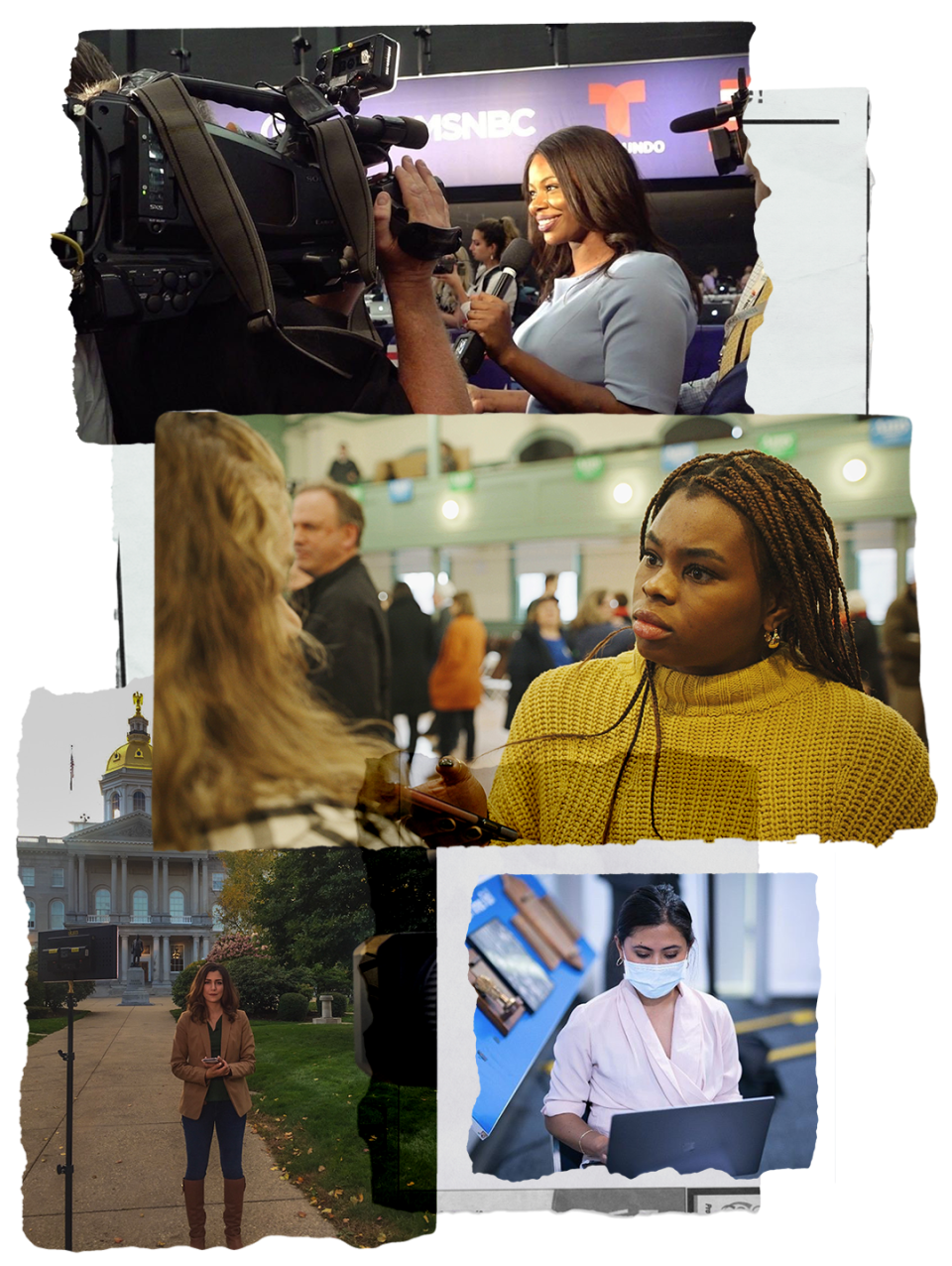
During a time when staying at home is encouraged, how have you been navigating work-life balance? Does it exist?
Dana Bash, CNN: In some ways it's easier, because I'm not on the road and I can be here, even if I'm on a call for work, or even if I'm actually going into the Bureau. I have been since the end of May. I'm not there generally speaking the number of hours that I was or would be without a pandemic. And combine that with the fact that my son is home. It's kind of forced quality time whether he likes it or not.
Kyung Lah: Oh, it's worse than ever. It's extremely difficult because you want your kids to have some sort of normalcy, some sort of an education. But it is extremely difficult. And we have a small house, so there is no real separation between work, life, kids. It's just all like one endless day since March 3rd for me.
Averi Harper: It's hard. For so many of us who took on this role as embed reporters, we had been isolated from our friends and families for four months before that, before everything shut down. So for me, it was particularly hard to come home. And a few weeks after I came home, Bernie Sanders suspended his campaign. To still to be without covering the campaign and to still not be able to see friends and family, it was really hard.
Nicole Sganga: Work-life balance? It's an election year! I will say the good thing about becoming a campaign embed, something that has not changed in 2020, is the realization that my work-life balance is going to be perhaps a little worse than it would be in a normal year. But that's something that you understandably commit to when you decide to become a campaign reporter, because we are up very early in the morning and to bed late at night. There are constant phone calls, tweets, keeping up with sources, trying to reach out to voters, a new poll, a new upcoming debate, there's always something. In terms of social life, I've been Skyping a lot with family and friends, and really trying to reach out to folks just over the phone.
Jacqui Heirnich: I kind of have this always-at-work brain, and it was always a challenge, but once you finally do stop working, you might move from one end of the couch to the other. And there's no real boundary between, what's your work side of the couch and what's your TV side of the couch? I'm very happy to be back in the field. I'm glad that things are ramping up now.
Priscilla Thompson: On the road, eight o'clock at night, I'm working. It's nothing to me to be doing that. And here [at home with my parents], it's like, "Let me take an hour. My mom just got home from work. Let me chat with her about how her day was and sit and watch a television show with her, because I don't want to look back on this time and say, I lived at home for six months and I don't even remember the new memories or the things that I did with my parents." When else am I going to have an opportunity to spend this level of time with them in my adult life?
Deepa Shivaram: Sometimes, especially as reporters and I think also as women, we tend to want to just keep working. We want to be on top of the story. We want to be covering everything we possibly can, but that sometimes means that you're still married to your laptop. You're not giving yourself that time and that space to process things. It took me a while to adjust. I had to realize that, yeah, you're working from home, but it doesn't mean that you need to be working 20 hours a day anymore. You need to set limits for yourself.
As a woman in this space, can you talk about the importance of support and mentorship in this industry?
Marianna Sotomayor, NBC: It's the most important thing to get you through. I remember the advice that I got from a 2012 embed before I embarked on my own journey, and they said, "I understand your job because I've been there. But I will never, ever, ever understand or be the best person to give you advice as the people who are going through it with you." And it's so true. We were assigned different candidates. We all have had different experiences since the pandemic started. But to this day, we are texting each other, even checking in, or if we see one of us on TV and freakin' slaying, we're like, "Okay, you killed and you need to know that." Honestly, it makes a world of a difference some days. You do it out of generosity, but also you don't know how that person's day might be going.
Beatrice Peterson: There are a lot of women out there who are doing amazing things. And it's great for us to have a support system, because sometimes you just get frustrated and you just sit in your car and you cry because something has happened. I think sometimes in other industries, people are like, "Well, why are you crying?" But with this, you're crying in your car. And the other girls are like, "Girl, I just cried like five minutes ago." But you have a cry, and then move on and you just do amazing things. There's plenty of us that carry around snacks and we haven't eaten in time, or we've been out for eight hours and haven't eaten, one of the girls is going to say, "Okay, we need to eat." So everyone gets an Uber Eats order, or does anyone have any Costco snacks in the back of their car? So everyone's like, "I've got a granola bar! I got the water!" It's not just people you work with in your same network. It's a community. It's a sister network.
Deepa Shivaram: When I moved to cover Elizabeth Warren in November of 2019, that press corps had already been there for so many months. And I was coming in as a new person halfway through, which was kind of intimidating. These are our competitors, these women who were other reporters are our competition. But I never felt that. You constantly just had a support system and friends. I will tell you, the group text during the pandemic is popping. That is how you get through the pandemic. I remember the first month or so, all of the Warren embeds, someone would just like click the FaceTime button in the group text. We all know that we're all around. And so it would just start a weekly FaceTime therapy session, where we're all so ingrained in each other's lives. It's impossible to imagine this experience without them.
Molly Nagle: I wouldn't be where I am without some of the mentorship that I've gotten at ABC. I got my start as Martha Raddatz's intern. And she was just always incredibly generous with me and really took me under her wing when she had no reason to. I moved to D.C., and I didn't know anybody in the city, I'd never lived in the city. And she was always incredibly generous with her time with me. I have vivid memories of sitting on the floor of her office, as I nervously asked her, "Will you take a look at this piece I wrote?" and she's on the ground saying, "This word choice is great." Or "You could make this a little bit sharper, this point here."
And I just had such a vivid memory of being like, "Oh, my gosh, like, I'm doing this," and just feeling so incredibly lucky that she took an interest in me and was willing to share her time and her thoughts with me, and has continued to do so to this day. All of our correspondents are incredible, working on the trail with Mary Bruce and Eva Pilgrim and all of those folks. You learn so much from just being around people of that caliber and just seeing how they work and seeing how their minds work, and getting a better understanding for how you can anticipate their needs or a tip that you could use going forward that makes you a smarter reporter.
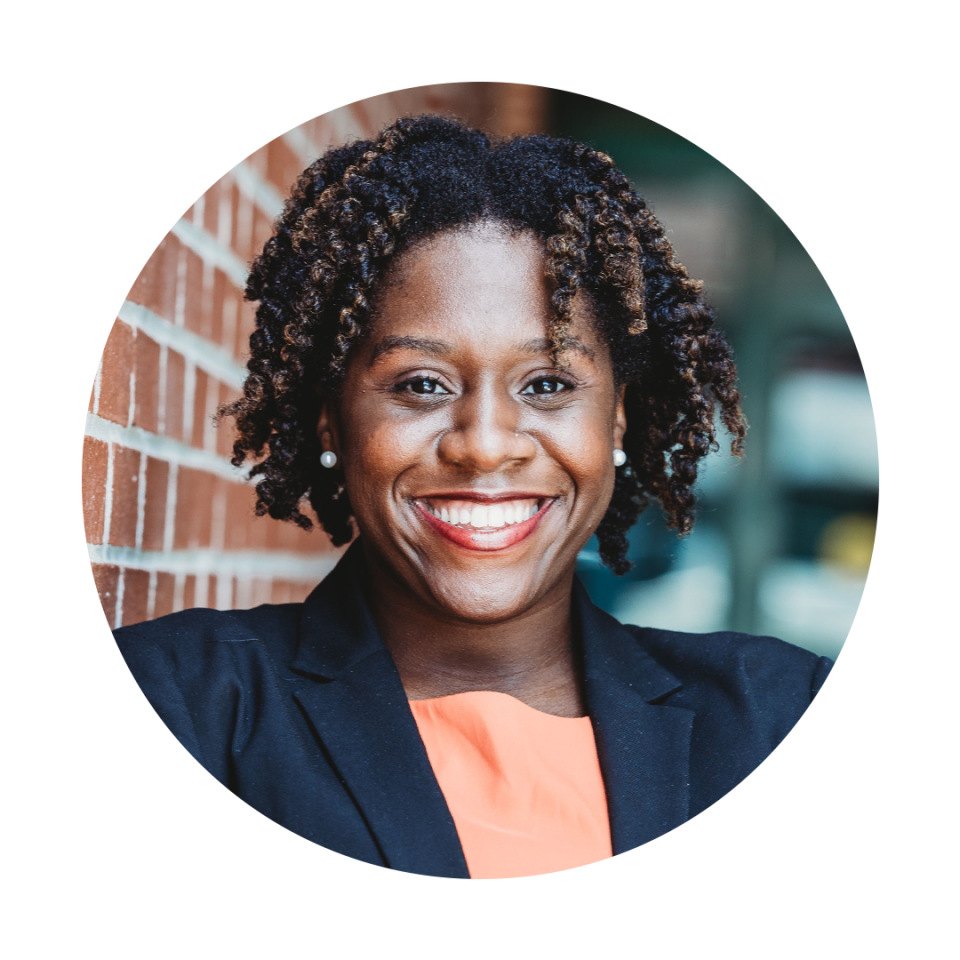
LaCrai Mitchell: I feel like I've always had women within the company, but also men too; I had a really, really cool village is what I call them, like a squad. … It's been awesome to have Bill Whitaker, who's over at 60 Minutes, be that type of mentor for me, because I worked with him before joining the trail. Not to sound like a broken record, but when you have someone, who has not only done what we're doing on the trail, but has done it for multiple cycles, so they see how covering the trail has evolved, they've seen how different candidates impact how the trail is covered. It has been a blessing to say the least to have someone who just gets it, to be able to sound ideas off of, to be able to share the sounding board for everything that one needs in order to vent and survive and properly emote. He's been a great mentor, friend, and just a person to learn from.
Kyung Lah: The people who have supported me the most and who have offered me the most amount of guidance, strength, wisdom, direction have been other women. And I have to say, hands down, the leaders in my life have been women of color. I have taken just what I have personally experienced and really just tried to help other women in our industry, regardless of whether they're both color or white. We have to help one another.
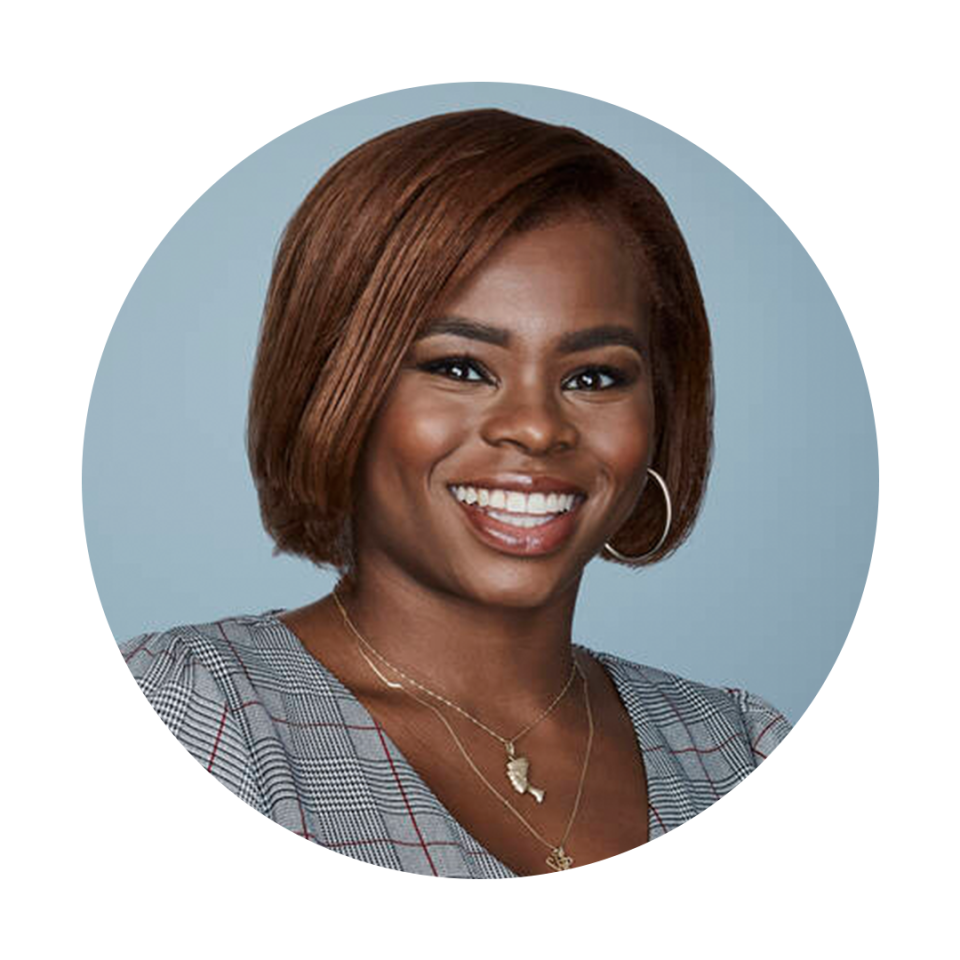
Jasmine Wright: I just legitimately cannot say enough nice things about Kyung. From the moment that I met her, she has just been an absolute outpouring source of support and advice, and levity if I'm having a crisis, and understanding and comfort. I've found that in other places in journalism. I found that with the women. I worked with PBS News Hour, and I found it at CNN specifically with Abby Phillip and with Nia-Malika Henderson, and some other really fantastic women. But Kyung and I were on the road so long. She's so quick to provide that type of support and comfort and advice. And I'm constantly texting her, like, “What do you think about this?” “What do you think about that?” “Oh, my God, listen to this tea I just heard.” “Do you think this is a good idea?” And she's just so quick to answer.
That type of support, I feel so, so absolutely blessed to have in my life, because you feel like you have a partner who has already been through creating this fantastic career for herself. And she is leaning in to now helping you and helping you navigate your way through it. … I think that mentorship and that kind of camaraderie between women is absolutely invaluable. And it is how we can be so successful in this realm. I don't think I'd be as successful without her. I absolutely mean that.
In a time when misinformation is so rampant, what is your responsibility to truth and objectivity? Facts can be distorted on social media, in campaign ads, and from the president and politicians themselves. How do you hope to combat that?
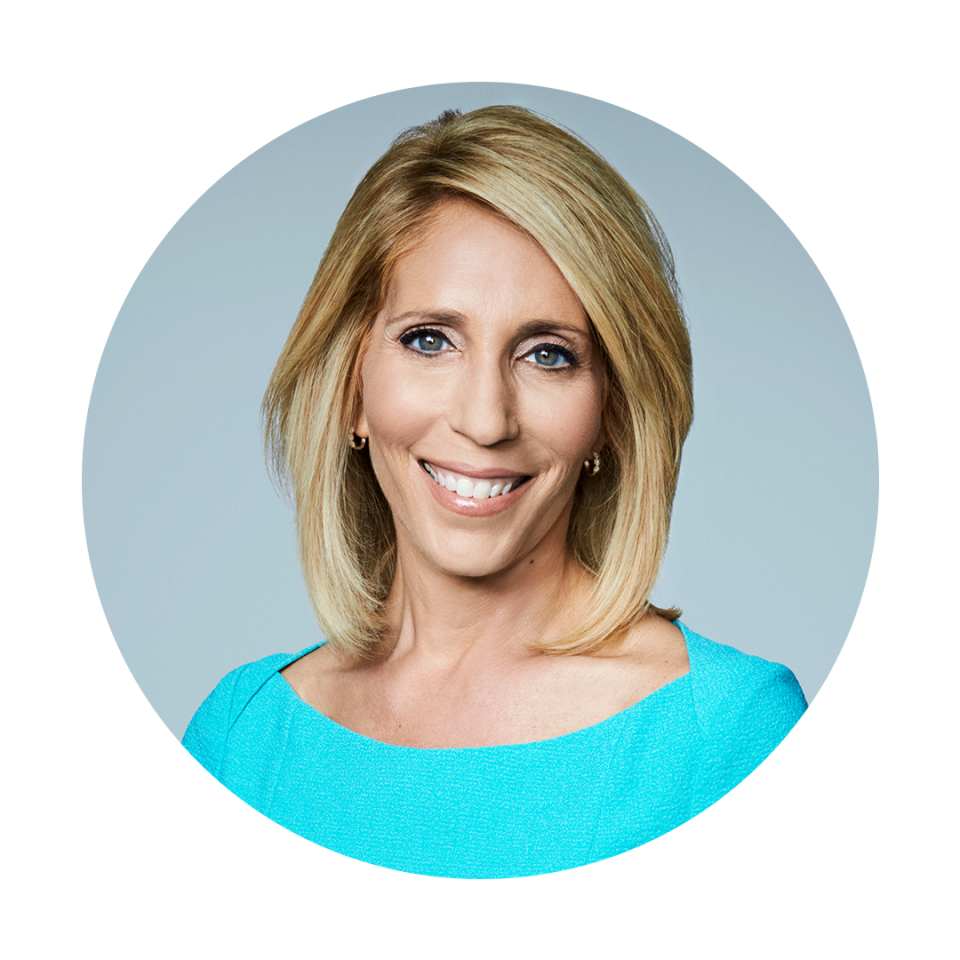
Dana Bash: It's never been more important. And I find myself feeling overwhelmed by how many lies are out there and how critically important it is for us to try to correct that. I just hope that people still trust objective news reporters and news reporting, that when we say what somebody is trying to feed you is a load of crap, that you have to take that into consideration.
And it's not always easy, because not all media outlets are doing what we're doing. There are some media outlets who are propagating the BS, and it's so scary. I think that the information flow, the way that people are consuming information and misinformation, is one of the scariest things about where we are right now in our democracy. And listen, it's not fun to be a reporter and an objective reporter who has covered the White House and covered politics and government for 25 years to sit there on television and say what the president of the United States just said is wrong. It's not a comfortable position to be in. It's very odd, but it's important if that happens. And when that happens, to say it, and to call it out—we've never been in such bizarro world before as we are now.
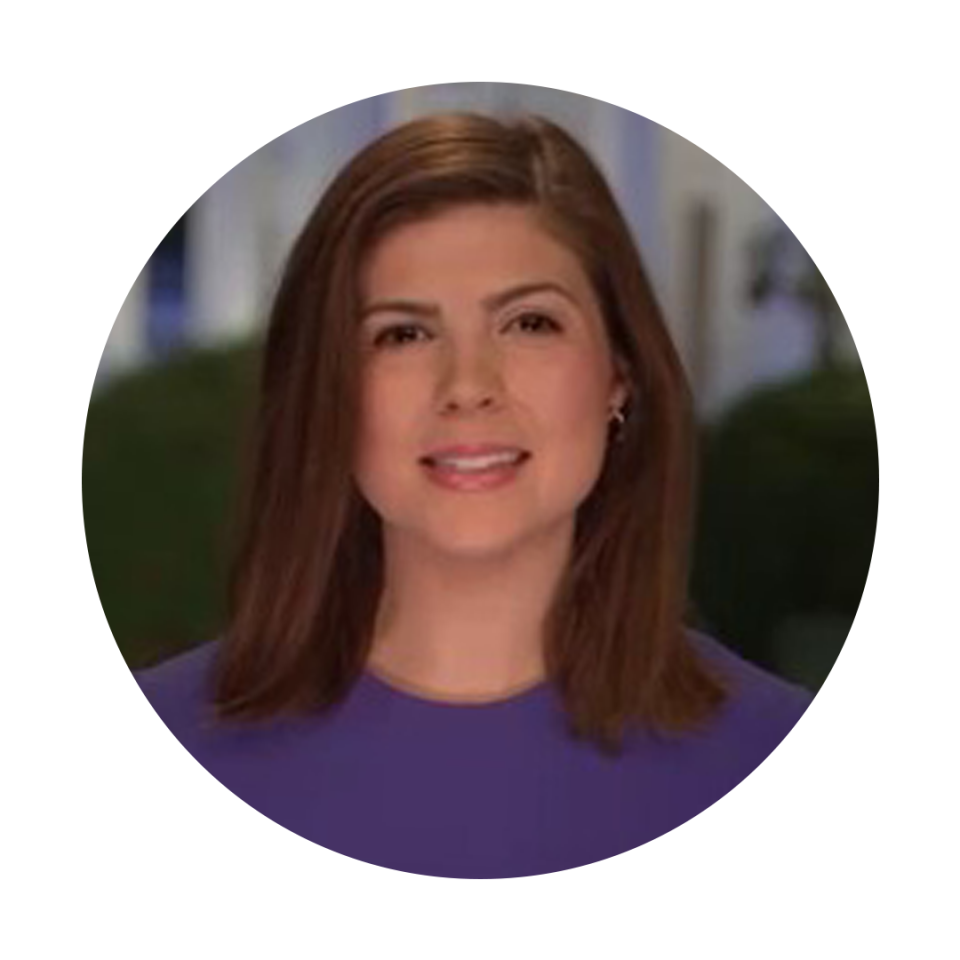
Monica Alba: I think that's always been incredibly important, but perhaps now more than ever, as we have seen an increase in disinformation and the role that social media can play in something that is based in no fact can just take off and be amplified depending on who and what agenda is behind trying to get that out. We at the White House are working so often to try to figure out and drill down sometimes on where certain conspiracy theories come from. That's something we've had to deal with and report on extensively in the last few months. And just misinformation associated with the pandemic also, because this is a critical public service when you are trying to drill down on what is true, what is based in health and data and science, versus what may be floating around on the Internet. I think we have a huge responsibility to marshal that, be clear, and report what we know to be, again, based in reality and make sure that we also flag when things have been manipulated online, which is something we're seeing happening a good amount.
And now Twitter is regulating that and labeling manipulated media a little bit more. That's something that's a newer phenomenon. I think it's really important that we owe it to our viewers and our readers to give them all of the information about something like that. Especially when you have a president who likes to tweet a lot. It's his favorite platform for reaching his supporters, and by virtue of retweeting something to millions of people, he often is amplifying something that we really need to drill down on to see, How true is this? Where is it coming from, and why is he sharing it? I think that has been really important.
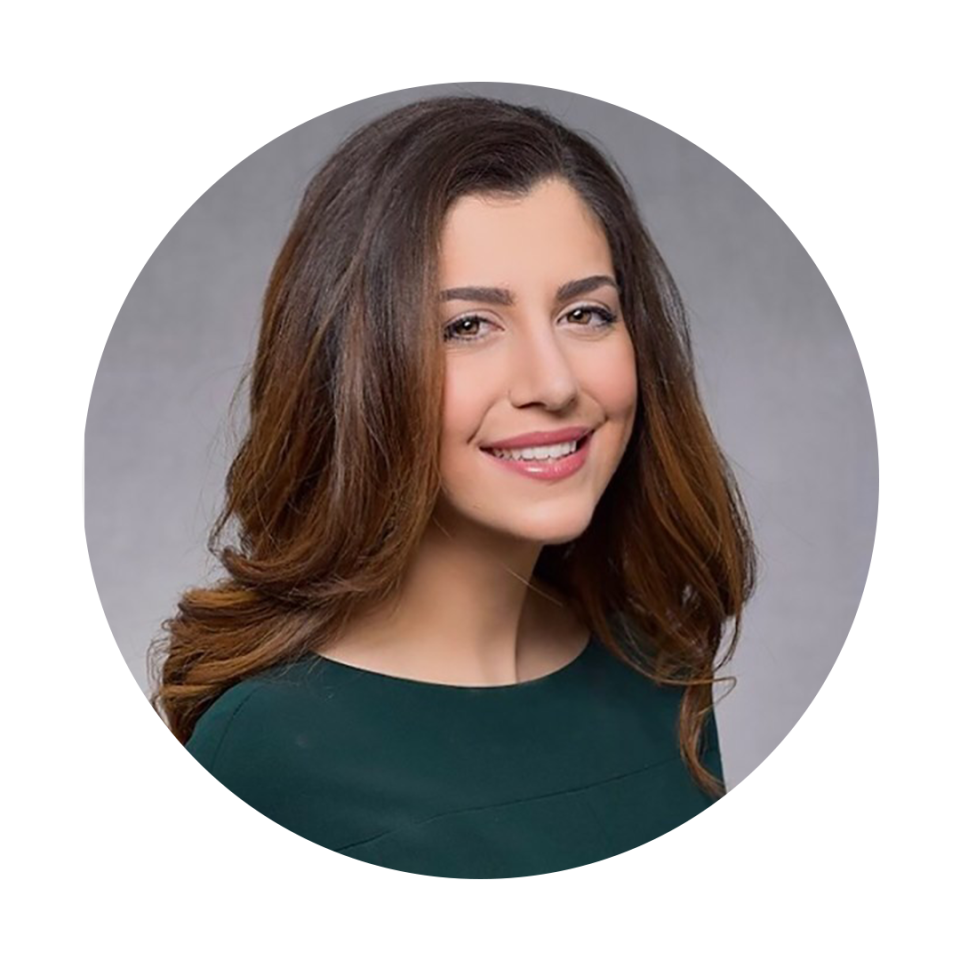
Nicole Sganga: I spent probably half of my days fact checking campaign advertisements, statements from the candidates, both sides of the aisle looking into researching policy stances, and also holding candidates accountable. So, you know, the president said as he did last month, that there's going to be a health care plan, that he is going to sign a health care bill, trying to figure out. Well, why hasn't that happened yet?
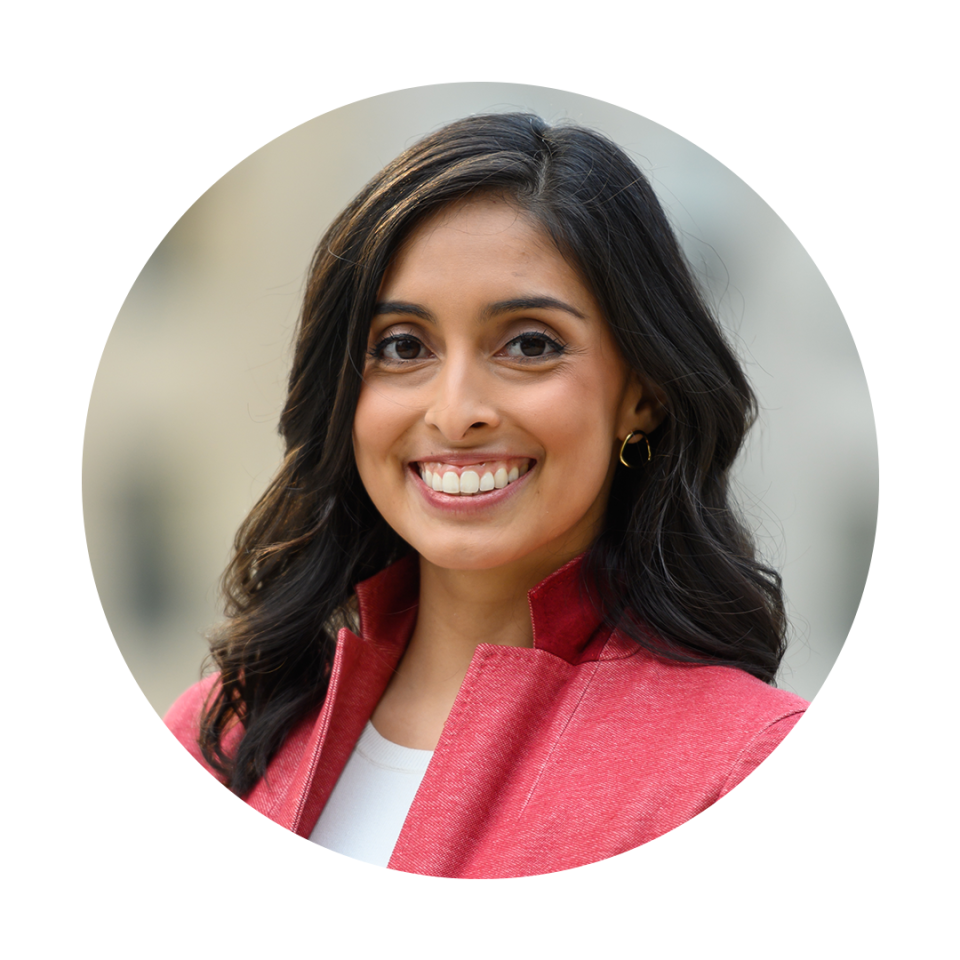
Marianna Sotomayor: As reporters, we see the "fake news." There are those attacks. I personally don't read Twitter comments or Instagram comments on my stuff, because there is this pushback against journalists, and pushback is probably a tame way of describing what's going on. But in some way, it does motivate us to be better reporters, because our personal reputation is on the line. But also, if one of us messes up, that doesn't look good for everyone else. And if you're in this job, you want to tell the truth, you want to get to the bottom of things.
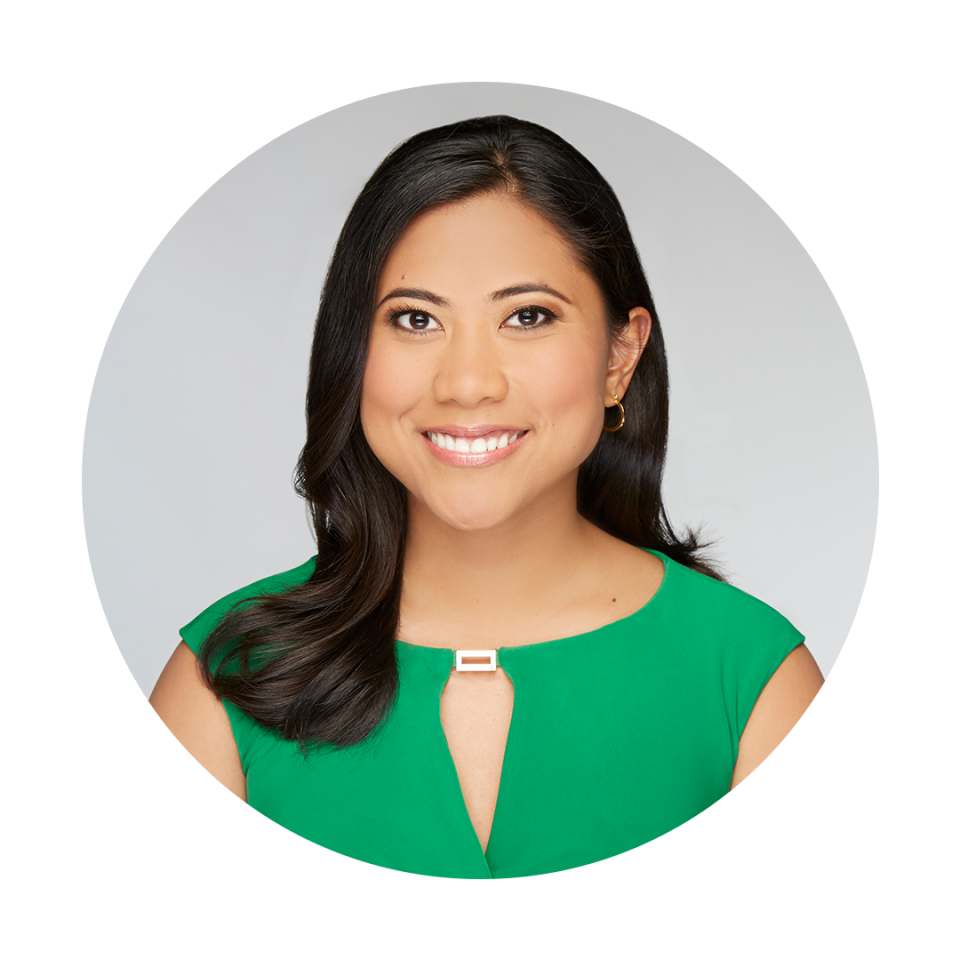
Madeline Rivera, FOX: I think there's a lot more pressure now. Everything moves so quickly. And obviously, as a journalist, you should triple-check everything. I think now there's just a little more pressure, because everything moves so fast with Twitter and a wrong tweet can suddenly go in a tailspin and … create its own life. So I triple-check everything before I tweet anything. That I think is a bigger demand. I look at that a little more closely. When it comes to the basics of the job, though, and just double-sourcing everything, triple checking, those don't change.
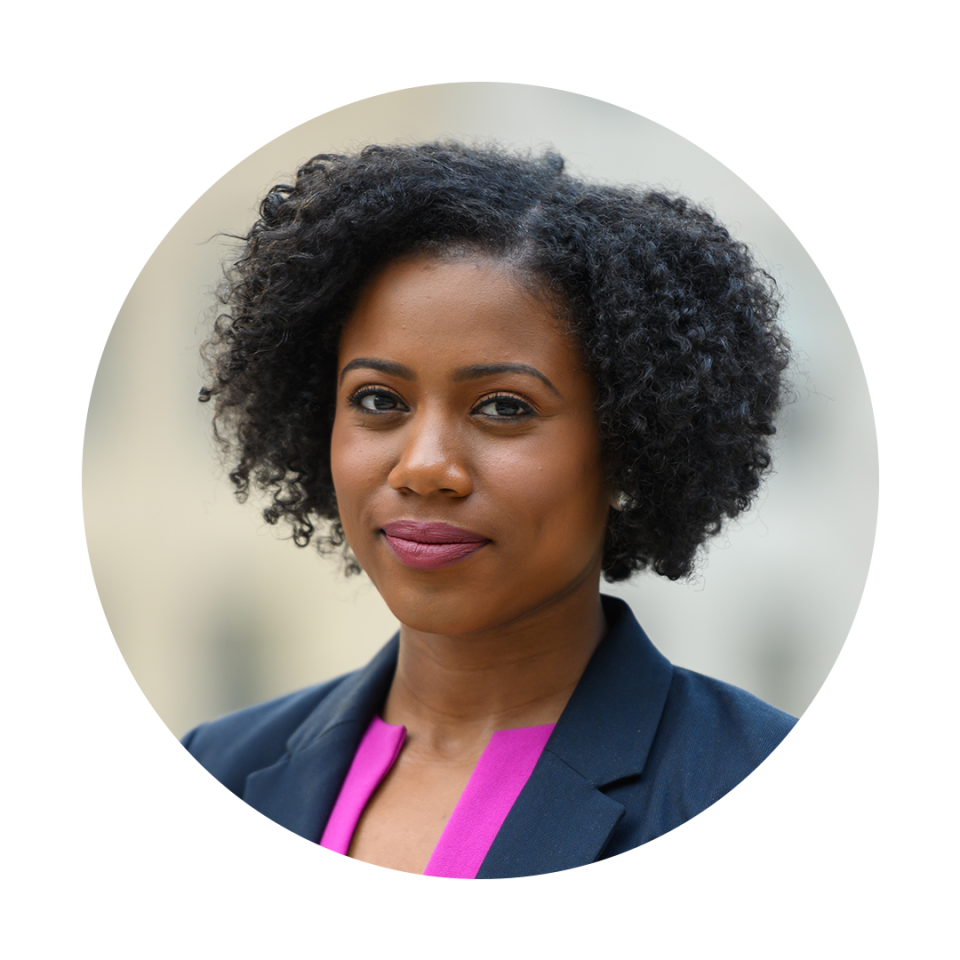
Priscilla Thompson: In talking to voters, a part of the conversation is, "Where are you getting your information from? I understand that you believe this. Why? Where did you hear this from? And how is that shaping the way you're thinking about this election?" Because, yes, as reporters, it's our job to shed light on when there is misinformation out there, but there's also a really important piece of understanding that there are people who, even if you say something is actually inaccurate, they believe what they believe. How is that shaping our electorate and the way people are voting and thinking about things heading into the election? That is a very interesting piece of it to me. What are the people who believe it doing with that information, and how is that going to shape not only what happens on Election Day, but what happens after?
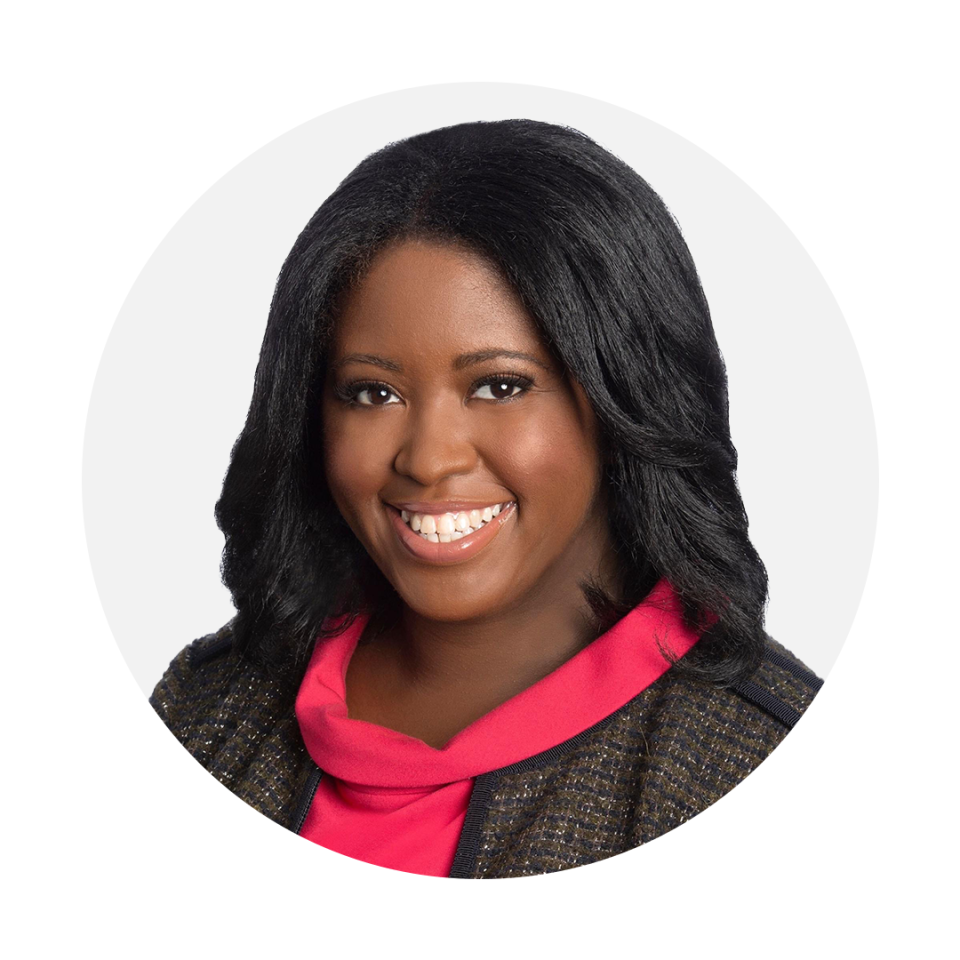
Beatrice Peterson: Often, what I think about is Beto O'Rourke, when he dropped out. I think it started on Twitter first, the perfect example. And I said, I don't know if this is true or not. We're trying to verify it. I have sources that had said that he was going to drop out, but I just wasn't sure. It's always fluid. Campaigns are always changing.
I was at the Iowa Hall of Fame dinner, where he was supposed to speak that night. I was in the stadium, and I said, "Well, let me look out the window and see if I see anything," because Beto was supposed to have a pre-event before the dinner outside. And I see a man picking up the Beto O'Rourke signs, and they spent the whole day laying signs out to say that Beto was coming. … I see it's a coordinated effort. It's not like someone who's just trying to smear. I'm watching in real time where he gets the news that the campaign is over. That was a clear indication to me that there's something going on. Let me run outside and try and talk to this man. "What did you just hear?" It's a lot of legwork. Sometimes it's sitting outside a location and seeing if something that was tweeted out passes the smell test.
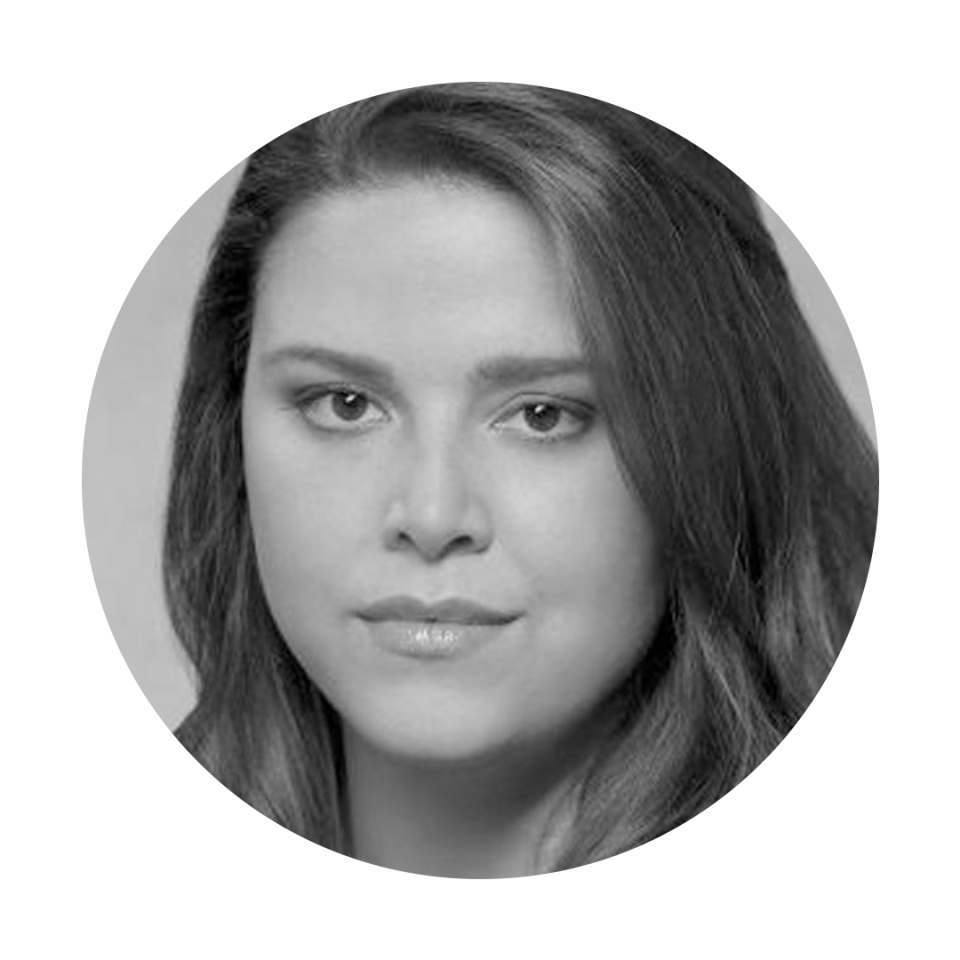
Cara Korte: If there is a cancer in the world of journalism, it's the desire to be first in a reckless way. And Twitter is a horrible thing. Honestly, Twitter is counterproductive to journalism in many ways. In some ways, yes, it's great. It reveals things we never would have known. It gives people voices that we never would have heard, but the little hit of serotonin that comes with every retweet and every like is intoxicating. And part of misinformation obviously comes from politicians. It comes from foreign forces. But also as journalists, the least we can do is do our best to get things right. And to treat things with care. I'm not lecturing anyone; I tell myself this every day as a pep talk. Take a breath, take a beat and remember context, because people are inundated with information enough, true or false. And what's really important to me is just not contributing to noise.
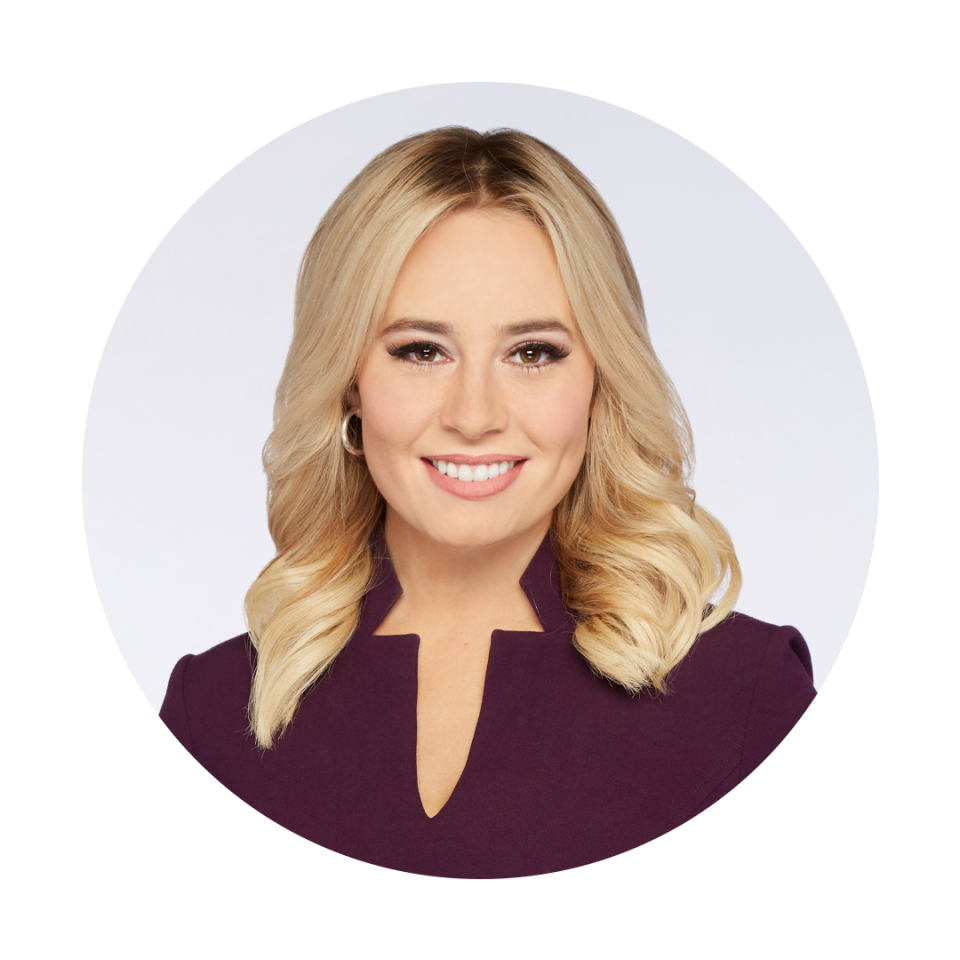
Jacqui Heinrich: I cover Biden, so I don't go out and fact-check everything that the president says every day, because my role is to cover Biden. But so far, as stuff comes out that maybe isn't accurate coming from the Trump campaign, I will, in my reporting, make sure to really flesh it out. We'll use fracking as an example. The Trump campaign has said Biden wants to ban fracking. I'm not here to say whether Biden's plan would kill jobs or not. I don't have a crystal ball. But I can say that Biden's plan does not ban fracking. So I go back to the details of his plan and say, "Here are the nuances of it." … I think that when it comes down to misinformation about my candidate, I make a really big effort to not just include in my reporting the facts that I know that are counter to that, but also to send it out to the network so that we can have that informed reporting on other shows that I might not be in.
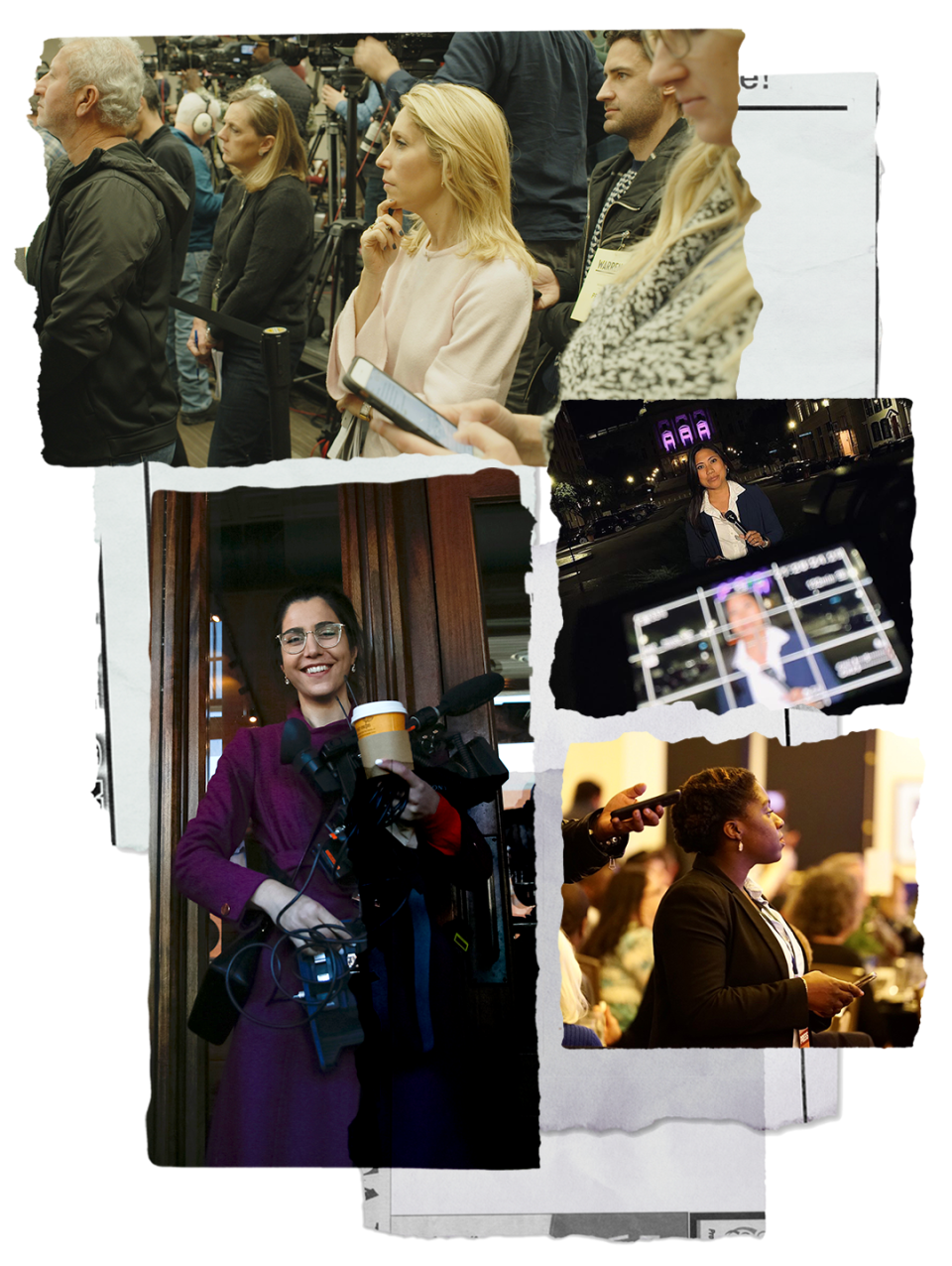
The election has overlapped with a significant moment of racial reckoning and uprising. How has that affected your coverage?
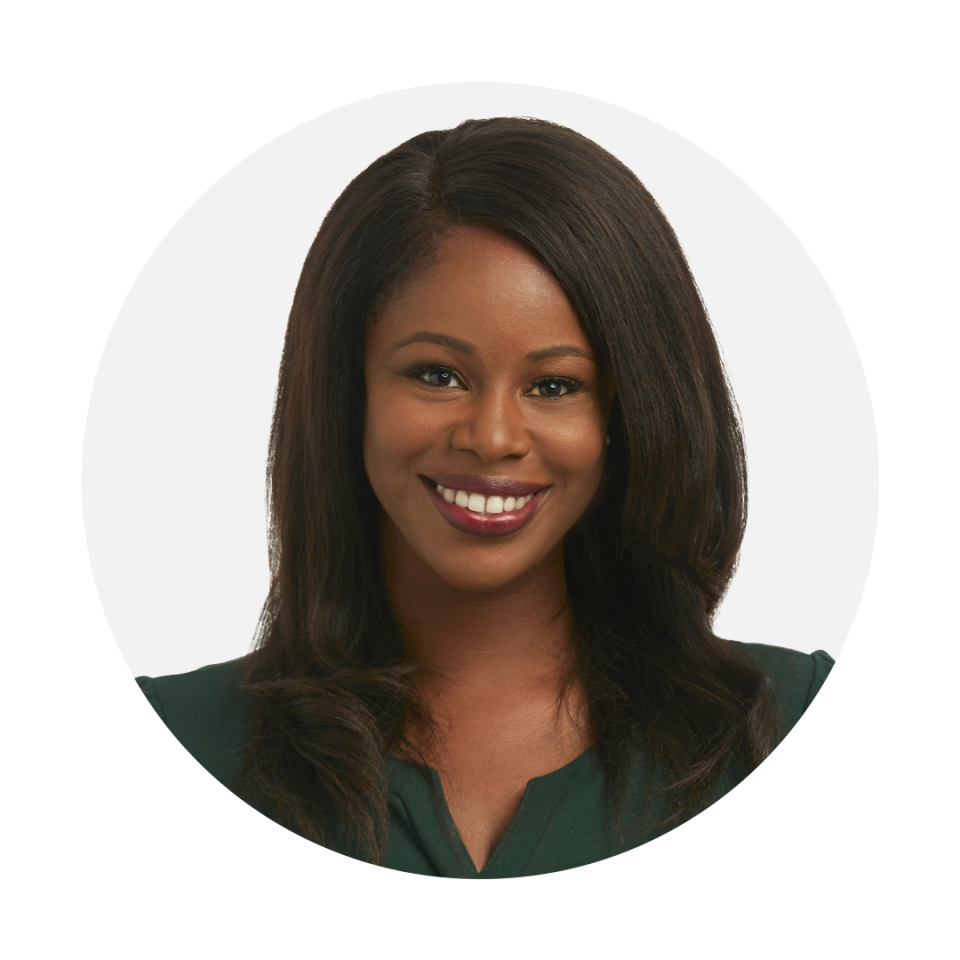
Averi Harper: I actually went to Houston to cover George Floyd's funeral, and I was out at some of the protests here in New York City covering things for ABC News. I think for Black reporters, this was a time when you felt like all those stories that you've been telling—because Black reporters in any newsroom are always trying to get stories that come from their communities and from folks who feel like they've been marginalized. So for it to become the big story and for so many resources to be devoted to covering this story, it makes everything more real.
Now, going forward with covering the campaign, everyone's forced to think about that and put that into context, in terms of the stories that they tell. I mean, with Kamala Harris, as a historic vice presidential pick, given her background as a prosecutor and as the attorney general of California, all of that is going to come up again. And we're going to continue to talk about it, which I think is a good thing.
Jasmine Wright: I think it just makes everything just so much more succinct. If you look back, and kind of my narrative throughout [On the Trail], it was about championing stories of folks who are largely historically underrepresented. And I think that’s still the case, because of the reckoning on race and because of the changing perception of Americans to understand that the white experience is not the only experience in this country. And that people of color experience life completely different. It will then just create more of an effort on the press to be actively looking, to represent those folks who have often felt shut out of the system, who have often not seen themselves or seen their uncles or their aunts or their moms or dads or their brothers or sisters really reflected in journalism and in the telling of stories. Because every American's experience is the fabric of this country.
For me, as a Black woman to be covering the first Black woman, the first South Asian-American woman VP candidate, I'm able to use my experiences and my connections with the Black community and bring that. Because those lived experiences that I have are a part of the American story. And bring that to whatever context that she is running in right now. I think that it is a great responsibility that I have to the American public, to get the story right. And for the story to be accurate and to report and actively reflect all sentiment about what it means for her to be running in this time and how young girls perceive her. And the inspiration that's drawn from that, and how college students perceive her, and whatever sentiment is drawn from that, how adults perceive her, and just really be able to accurately reflect and provide context to the moment that we're in. I think that I naturally, because of my lived experience, am in a decent position to do that.
LaCrai Mitchell: You know, what we've seen over the summer has been revelatory for a lot of people, but for a lot of us who were already in news, these things that we're reporting on were not new, haven't been new for a long time. For my coverage, I don't know that it has changed it in any way, because these were already things that I always thought about when I tell a story, race and how it plays into whatever I'm covering that day, because so many things in our country can't be adequately described without looking at how race is involved, whether historically or modern day.
It's looking at the words that I use to describe something; there are different connotations when you use riot versus protest or demonstration. Being intentional with the words that I use and being intentional with the voices that I find in order to tell a story. Are the voices that I'm using in a piece diverse? And not just diverse in race, but in thought and personal experience, in age.
I'm sure I'm not the only person who felt like—when you are out and about, and you're able to cover things, we get this built-in distraction of always being on the go. And a lot of times, if we're covering these events that maybe hit home for us, we don't always have time to process them. But when you're home and you're sitting in it, and you're watching the same clips on CNN, everyone is watching the same news briefings, without the distraction of having to get on a train, to go to work, or go to a place. For me personally, some of these events have hit a bit closer, and I've had to figure out how to process my own personal feelings about events that we seem to inspire in a way that even I wouldn't normally have to, because of the distractions of being on the go and on the move.
Priscilla Thompson: There's a conversation, especially when I talk to people about their key issues. And for some people, it is racial and social justice, and what that looks like in the upcoming election. In the debate when the comment was made about, "Proud Boys, stand back and stand by," I saw a lot of Black folks who I know having conversations around that and what that means and how that made them feel. It's certainly a conversation that's happening within our politics right now. It'll be interesting to see if that remains an issue, and if it's being talked about after the election.
Marianna Sotomayor: You can't ignore the story. This has injected itself into politics very easily, very quickly. So for me, just covering the candidate, that became the focus. It's like, "How is the campaign going to react to this? How is the candidate reacting to this? How has he said it in the past?" This guy's running for president. People need answers to how he feels about these things. And that is where we come in, and that's where we press. And that's when we try and ask those questions, which is hard in a virtual world, when you actually can't shout questions at him, but that becomes the focus. You do have to do your due diligence in that way.
We've seen changes across the board. It's not just in journalism, but it's been great. And I think as a woman of color, it has been encouraging to see changes. Just personally as a Latina, I was ecstatic to see that Nightly News was doing this crossover with Telemundo reporters. And it might not have been a political story. It's just like, "How are Hispanic people in this country facing the economy or the pandemic?" And just getting those stories and telling them in a different way.
What’s your takeaway from covering the 2020 election amid this shake-up?
Averi Harper: It's to be flexible, to expect the unexpected, and just go with the flow. That really has to sum up this crazy election cycle. I was in Las Vegas covering Bernie Sanders when he had a heart attack last October. We had to deal with impeachment in the middle of the early state primaries. The Iowa caucus. Coronavirus. Everything has been completely insane and completely unprecedented.
Madeline Rivera: I think it just goes to show you how quickly we can adapt. There was a lot of question about routine when all of this happened. You were going a hundred miles per hour, and then it stopped. And now it's going a hundred miles per hour again. I think that's just a testament of how we can push forward and how we can adapt and change to the always-shifting landscape of how we cover news.
Beatrice Peterson: My takeaway is the resilience of the American spirit. ... Unfortunately, because of COVID, people can't go outside, but I wish more people could see how good Americans are to each other, making sure that other people are okay.
Marianna Sotomayor: We’re definitely at the front lines to tell this very unique story of what it was like to be campaign reporters, to be reporters at a time when, not even just a pandemic, but there are social injustices, economic consequences, just huge stories. I still feel lucky to have this opportunity to be able to do this job. It's been a crazy, crazy ride and I'm sure it will continue to be for the next few weeks and possibly after. I think all of us in some way have definitely grown as reporters, which I think is what we all kind of wanted. I have no regrets.
Interviews were edited and condensed for clarity. Designs by Ingrid Frahm.
You Might Also Like

